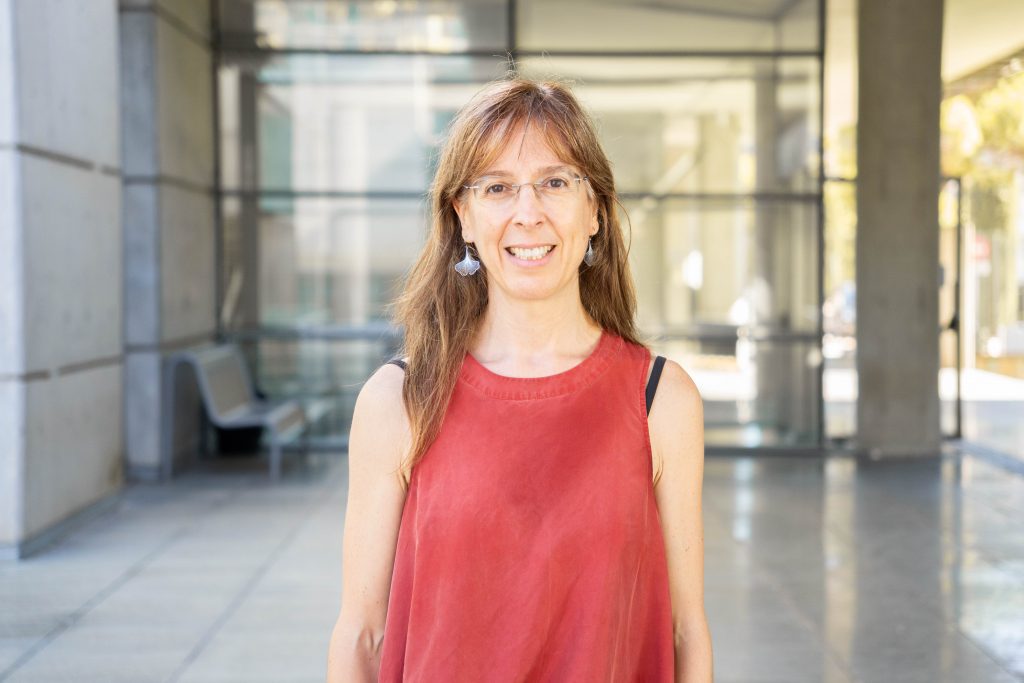The Institute of Chemical Research of Catalonia (ICIQ-CERCA) is pleased to announce the incorporation of Prof. Beatriz Prieto Simón. She takes the position as ICREA Research Professor who will lead a research group centred on bioinspired nanotechnologies for the next generation of diagnostic tools.
This is an important appointment for ICIQ as will reinforce the health area, in particular the sensors research line, represented at this moment by the works done by Prof. Pau Ballester and Prof. Emilio Palomares.
Beatriz’ team aims to unveil fundamental advances on synergies at the interface of nanostructured materials and biological processes to lay the foundation to build smart platforms based on principles found in nature. The group’s main research interest is exploiting the knowledge acquired to address diagnostic issues pointed out by clinicians and end-users to underpin technology adoption, and thus its translation from concept to application in the real world.

Prof. Prieto Simón career
Beatriz Prieto Simón has a scientific career of more than 20 years in the field of biosensors, nanotechnology, materials science, bioengineering and electrochemistry. She is a leading expert in electrochemical biosensors. Her main expertise covers the design, micro- and nanofabrication, and surface chemistry of nanomaterials, and their integration into diagnostics that are fit-for-purpose.
Beatriz obtained her PhD in chemistry at the Universitat Autònoma de Barcelona (UAB), conducting part of her doctoral research on biosensors at AgResearch (New Zealand) and at the University of Ioannina (Greece).
She conducted postdoctoral research at the University of Perpignan (UPVD) (2005–07), with stays at the Laboratoire interfaces et systèmes électrochimiques (LISE-CNRS) and at the International Center of Biodynamics (Romania).
In 2007, she joined the Tokyo University of Technology as Japan Society for the Promotion of Science Fellow. In 2009, she returned to the UPVD and then joined IBEC as Juan de la Cierva Fellow. In 2012, she moved to the University of South Australia where she won a Senior Research Fellowship. After four years, she joined Monash University as Senior Research Fellow.
In 2018 she joined the URV as a Ramón y Cajal Fellow, where she became ICREA Research Professor in 2020.
Know more about Prof. Prieto Simón
When did you decide to become a scientist and why?
By the end of my Bachelor’s degree, I had the opportunity to be involved in a research project, and that triggered my interest in becoming a scientist because I realised that pursuing a scientific career, I could follow the path towards a continuous learning process. Since then, my main purpose has been to funnel all that learning into new knowledge contributing to improve our lives.
Advice to young researchers:
Be unique in what you aim to do, and honest with your expectations. Be aware of your strengths and weaknesses to identify your potential. Be strategic and smart, creating opportunities from the uncertainties along your research career. Know who you are, the rules and players in the research field, but remember you are not alone, and thus look to be surrounded and supported by the right people.
Why do you choose ICIQ for your next step?
ICIQ has a strong reputation for research excellence in Chemistry, providing a dynamic environment for researchers and offering a clear vision, mission and a set of ambitious targets to deliver world-class research and innovation. I believe that ICIQ’s research culture, existing expertise and infrastructure, perfectly suit to our research driven by chemistry principles, providing us the possibility to significantly thrive.
What impact would you like your research to have?
I aim at delivering world-class research and innovation, with special emphasis on outcome-based research where cross-disciplinary teams can work with industry partners and end-users on real-world problems. Specifically, our research focuses on delivering valuable diagnostic solutions to significant and relevant clinical and environmental problems through research that is goal-driven and multidisciplinary.
If there were a motto hanging at your lab’s door, what would it be?
“Science knows no country, because knowledge belongs to humanity, and is the torch which illuminates the world.” – Louis Pasteur